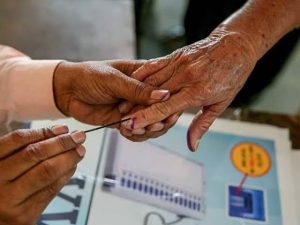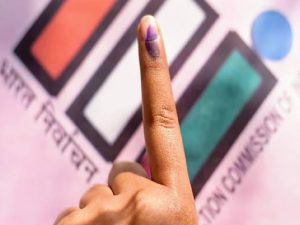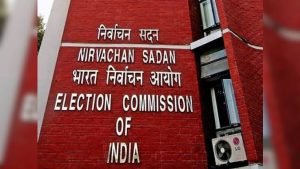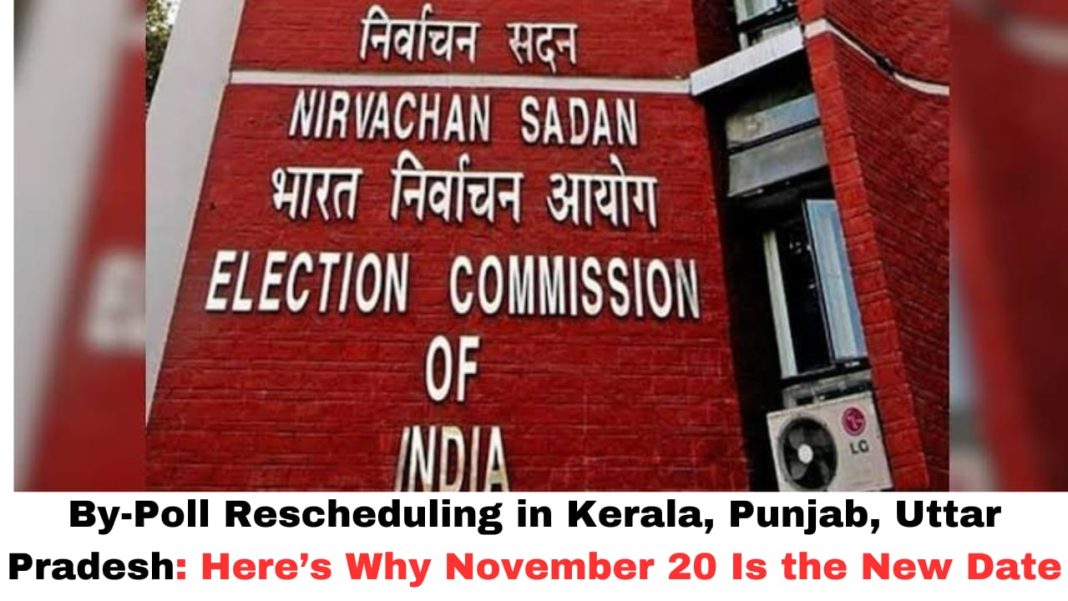Digital News Guru Political Desk:
The Election Commission of India (ECI) has made an important announcement regarding the scheduling of by-elections for 14 Assembly constituencies spread across Kerala, Punjab, and Uttar Pradesh. Initially planned for November 13, the polls will now be conducted on November 20, 2024. This decision, taken on November 4, stems from appeals by political parties and civic organizations, who emphasized that November 13 coincides with a series of cultural, social, and religious events that could significantly disrupt electoral participation.
The Rationale Behind the Change
The ECI’s order specifically cited “large-scale social, cultural, and religious engagements” as the core reason for the shift. Political stakeholders, including major parties such as the Bharatiya Janata Party (BJP), Congress, Bahujan Samaj Party (BSP), and Rashtriya Lok Dal (RLD), presented requests to the commission, emphasizing the potential adverse impact on voter turnout. The Election Commission underscored the logistical challenges and the possibility of a reduced turnout, which could hinder the democratic process if the polls proceeded as originally planned.
Specific Cultural and Religious Concerns
In Kerala, the Palakkad constituency will witness the Kalpathi Ratholsavam, a grand annual festival running from November 13 to 15. This event is culturally significant, drawing substantial participation from local communities. The Congress Party flagged this issue, highlighting the potential overlap and its impact on voter mobilization. The festival involves a series of chariot processions and religious rituals, which are integral to the local traditions, making it difficult for citizens to prioritize electoral duties over their cultural commitments.

Punjab, too, has crucial religious festivities that coincide with the initially scheduled polling date. The state is preparing for the 555th Prakash Parv of Guru Nanak Dev, which includes a multi-day ‘akhand path’ beginning on November 13. The significance of these ceremonies prompted concerns from several quarters about voter availability. As expressed by the Congress and other groups, religious observances around this period are likely to limit participation, necessitating the election date change.
In Uttar Pradesh, the Kartik Purnima festival, a major event involving thousands of devotees, was a significant reason behind the rescheduling. Many residents embark on multi-day pilgrimages and journeys to sacred sites across the state. Reports from the BJP, BSP, and RLD emphasized that people typically travel several days before Kartik Purnima, which is observed on November 15. The expected large-scale movement of people posed a considerable logistical challenge and raised concerns about achieving adequate voter turnout in key constituencies such as Ghaziabad, Kundarki, and Phulpur.
Impact on Election Schedule and Logistics
Despite the deferment, the ECI confirmed that the counting of votes will still occur on November 23, and the overall election timeline, which mandates the completion of the process by November 25, remains unchanged. This decision illustrates the commission’s attempt to balance electoral integrity and cultural sensibilities. By ensuring that voters do not have to choose between participating in pivotal democratic exercises and observing important community traditions, the ECI aims to safeguard inclusive electoral participation.

Political Implications and Stakeholder Reactions
The rescheduling has prompted varied reactions from political players. While most parties have expressed satisfaction, acknowledging the cultural sensitivities and logistical hurdles, there are discussions about how this could affect campaign strategies. The BJP and Congress, for instance, are likely recalibrating their outreach efforts to ensure continued voter engagement leading up to the new polling date. Given the densely packed festival calendar, political analysts are watching closely to see how these developments might influence voter sentiment and turnout.
Furthermore, these by-elections hold strategic importance, particularly in Uttar Pradesh, where political alliances are expected to test their grassroots strength ahead of larger electoral battles. With the Samajwadi Party, BJP, and Congress eyeing the nine crucial constituencies, the delay allows additional time for parties to galvanize support. The upcoming polls are being viewed as a litmus test for both state and national electoral dynamics, providing insights into party performance and voter mood as India edges closer to the general elections.
Conclusion
The decision to reschedule the by-polls in 14 Assembly constituencies across Kerala, Punjab, and Uttar Pradesh underscores the Election Commission’s responsiveness to ground realities and community needs. Balancing logistical challenges with the sanctity of the electoral process is a complex task, but one that the ECI has addressed thoughtfully. As these constituencies prepare for the revised polling date on November 20, the focus will remain on ensuring a smooth and participatory electoral exercise, with the broader impact on political landscapes unfolding in the days to come.

This proactive adjustment highlights the dynamic interplay between India’s rich cultural tapestry and its democratic institutions, reaffirming the importance of inclusive and accessible voting practices. All eyes will be on November 23, when the results are declared, to see how these rescheduled by-elections will shape the narrative leading into the national political arena.
You May Also Read: Chand Mera Dil: Dharma Productions’ New Love Saga with Ananya Panday and Lakshya








